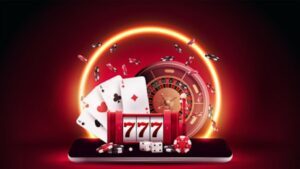Everyone knows that food is a great source of happiness, but do you also overeat when you’re happy?
If you go through life feeling down, and looking for reasons to feel better, you may be eating more food, than you realize. University of Michigan scientists found that people who want to feel good are more likely to eat sweets when they feel down. This study suggests that craving a sweet treat when you’re feeling down may be an unconscious way of telling yourself that you need to soothe yourself.
Many of us eat when we’re happy. When I eat junk food, I do it when I’m happy. That’s the problem. When you eat junk food, you don’t think about it. You just eat it. And then you eat more. And then you eat it all again. You don’t think about what you’re eating because you’re happy. You’re just happy. And you’ve got the food there and it’s there. And you’re eating it. That’s all.. Read more about what happens if you eat junk food everyday and let us know what you think.
If you’re content and aware of it… You are unlikely to consume a large bag of chips.
Here’s an example of an inverted connection that many people can relate to:
Junk food intake decreases when life excitement increases. When life stimulation is low, people eat more junk food.
Have you observed anything like this?
Life stimulation occurs when we have a fulfilling and difficult job, fulfilling relationships, interesting hobbies, lots of physical exercise, enough time outside, volunteer activities, and so on.
We may escape with junk food when we don’t have these kinds of activities in our lives — our work is dull, our family is annoying us, and we don’t have anything to look forward to.
It’s probably not a huge issue if we use food for stimulation every now and again. However, for other individuals, consuming food as a constant source of stimulation is a way of life. And it’s the junk food that’s stimulating the brain, not broccoli or lentils.
Okay, but there’s more to it.
So you’ve considered the life stimulation/overeating conundrum. Great. But it’s what occurs afterwards that’s really interesting. What happens when you discover you’re consuming a lot of junk food as a stressor or difficulty in your life?
What do most individuals do when they discover they’re eating a lot of non-nutritious food, eating in reaction to head hunger, missing life excitement, feeling awful, and becoming unhealthy/fat? They typically start concentrating more on the meal (or exercise).

They eat less, monitor calories, measure their food, and learn more about nutrition, among other things. (Some of them even burn calories while running on the treadmill.) However, in the vast majority of instances, the situation is as follows:
The issue isn’t with the food. Life is the issue.
They don’t have such fun everyday activities or connections. Those are the items that provide us with nourishment in a different manner. We don’t attempt to load ourselves up on junk food instead of filling ourselves up with life stimulus.
It’s the equivalent of a depressed person taking antidepressant medicine without addressing the core of the issue. While the medication may temporarily alleviate their symptoms, the issue will remain until it is treated.
From our customers
Have you ever gone on a trip that was both exciting and unique? Or do you recall beginning a new school year or job? What about the first few dates you have with someone you really like? Except when you were starving, you probably forgot about eating. It’s a typical kind of stimulation. We don’t go to the pantry as much when we’re excited by new things, new people, and new locations.
The Ratio of Awesome Stuff to Junk Food (AWJFR)
Here is some straight feedback from PN customers before I open my case of Tarot cards and foretell your future:
“Food may be a fast cure for every emotion,” says the author. This is a problem for me. Exercise is the only thing that regularly works for me other than medication to numb my emotions.”
“Our self-worth is often linked to our physical appearance in society. Take, for example, someone who eats for emotional reasons because they are unhappy with their lives. If they grow even more unhappy with life as a result of their physical appearance, they will consume even more, and the cycle will repeat itself. It’s very tough to get out of such situation. Some of us have (for the most part), while others are unable to sight the finish line.”
“Even though I never monitor my physical activity or food consumption during ‘busy’ periods, such as when I travel, I always appear to lose weight at such times, regardless of what I eat. I believe it’s because I’m in a new environment and am looking forward to being there. I’m simply living in the moment.”
“I believe the most difficult aspect is admitting to yourself that your present lifestyle isn’t exciting enough, particularly if it includes a job that you may find boring. Many individuals are looking for ways to pass the time (e.g., TV, entertainment, food, drinking). It’s one thing to ‘count our blessings’ and remind ourselves that things might always be worse, but I believe we need to go above and above to feel genuinely invigorated every day.”
Lessons on gastric bypass
This has happened to me many times with individuals who have had gastric bypass surgery. They have a life-changing medical operation and are able to stick to the new way of life for a few months. However, by the time they reach one year post-op, they are gaining weight again.
Why?
Because there was never an issue with food. It was a good life. Life’s troubles were simply expressed via food. If this is the case, the person will revert to eating, regardless of how tiny their stomach is.
Do you believe this is a miracle cure? Reconsider your position.
It’s your life, not your diet, that matters.
This is what I’ll leave you with. After three months of working together, I recall talking with a Lean Eating Coaching client. She was frustrated and didn’t seem to be making any progress.
One weekend, I challenged her to consider why she was consuming junk food when it contradicted her beliefs and objectives. She responded with a really perceptive answer. She admitted to me that she ate junk food every day at work since she despised her job. She found it tiresome and uninteresting. She just wanted to get through the day. She did so by relying on junk food for stimulation (and soda). Candy, munchies, and drink were her pleasures for the day.
Whoa. That’s a huge deal. Going on a diet isn’t going to help much with that. So, consider this:
Have you found out the real cause of your eating problems?
Is it true that the amount of junk food you consume is proportional to how stimulated/satisfied you are with your life?
Find out more.
Want to be in the greatest form of your life and keep it for the rest of your life? Check out the 5-day body transformation programs below.
What’s the greatest part? They are completely free.
Simply click one of the links below to access the free courses.
As a psychologist, I am often asked, “When do I eat junk food?” Or even worse: “When do I eat junk food when I’m happy?” I think it’s important to understand why we eat certain things when we’re happy, so that we’ll be better equipped to avoid those foods when we’re not.. Read more about why do we eat junk food when stressed and let us know what you think.
Related Tags
This article broadly covered the following related topics:
- what happens to your brain when you eat junk food
- why do we eat junk food when stressed
- why do we eat junk food
- eating too much junk food
- what happens if you eat junk food everyday






